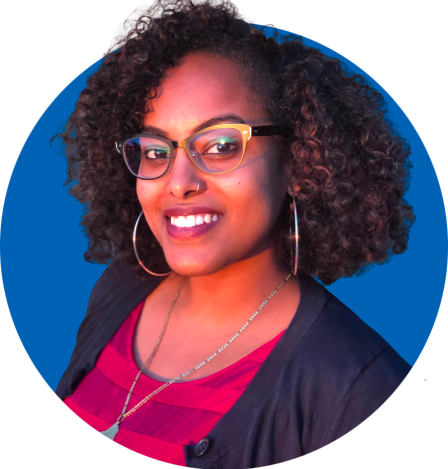As the Senior Program Manager, Nardos (she/her) leads the planning and implementation of Beyond100K’s Tier 2 programs in order to support partners in engaging with and learning from one another. These longer-term programs are designed to advance partners’ learning and action towards their STEM teaching and learning commitments with special attention to equity, representation, and belonging in STEM.
After starting her career as a high school math teacher in Atlanta, GA, Nardos held many roles across the PK-18 and education non-profit sector including math instructional leader, STEM teacher educator, and equity-centered program leader. In each of her roles, Nardos has focused on creating communities of learning through liberatory and human-centered design thinking frameworks. The communities of learning she shapes (both in classrooms and in professional learning spaces) center critical perspectives of BIPOC and other historically marginalized communities within a multi-stakeholder community to create innovative solutions that foster culturally sustaining education.
Nardos holds a Ph.D. in Teaching and Learning, Policy and Leadership, specializing in Urban Education from the University of Maryland, College Park where her research focuses on anti-racism and cultural sustainability in teacher education, pedagogy, and curriculum development. She has also earned a M.S. in Education Research, concentrating on quantitative methods, and a B.A. in Sociology.
